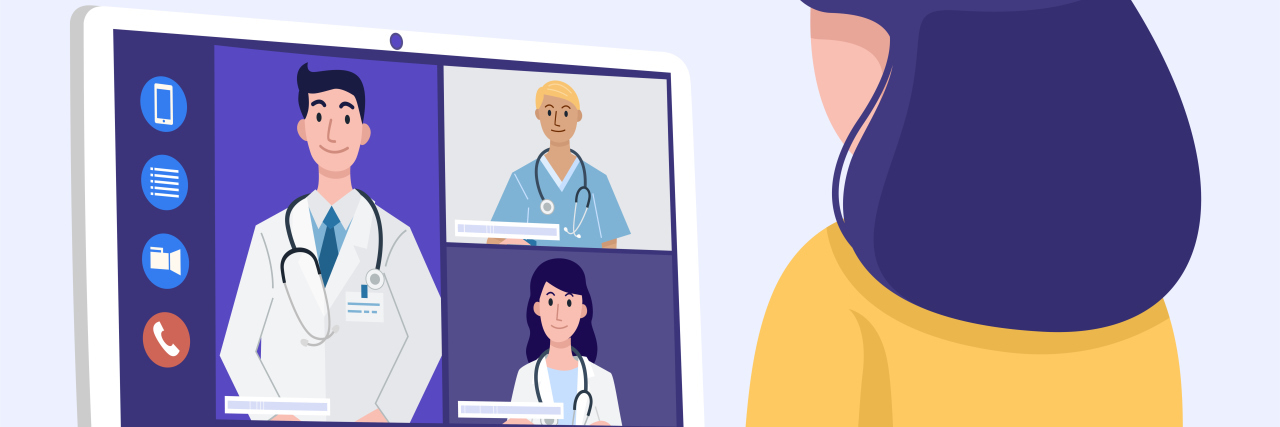The Post-Pandemic Future We Should Embrace Instead of 'Normal'
One of the constant reflections I’ve had this year amidst all the darkness of this pandemic is how so many structures have adapted in a way that is actually better for disabled and chronically ill people in the long term. When so many can work from home, why require an office? If free curbside pick-up is available at many stores, there’s no reason for people with disabilities to have to navigate challenging stores or carry heavy things or pay fees for delivery. With telehealth, we can go to many doctor’s appointments without the long commutes or minutes and hours spent in the waiting room.
I feel empowered when I can go to Home Depot and pick up water softener salt because of curbside pickup. One bag weighs 50 pounds, which I could never ever carry. This way I don’t need to rely on others to do things for me; I can do them myself. I love this feeling.
We’ve realized that as a society we can adapt and be disability-friendly, but we did not before all this happened. Obviously, it’s not perfect, but it means so many more disabled and chronically ill people can be a part of the world in a way we could not before. I don’t know a single chronically ill or disabled person who isn’t glad for these things and isn’t afraid that “when things go back to normal,” we’re going to lose all these flexible and adaptable ways of managing people’s needs, no matter their ability. Now that we know we can do it, we want to keep doing it and being part of the world, but we’re so afraid society is not going to embrace these changes.
The social model of disability emphasizes society’s role in creating disability. If it wasn’t for the lack of access, our disabilities wouldn’t be so disabling. The pandemic has made this clear to me. Sure, life would still be easier if I wasn’t disabled, but there are so many other ways to access the world now that keeping the old structures in place would only serve to discriminate against disabled and chronically ill people. Normal often means discriminatory, and now is an excellent time to recognize that reasonable accommodations are in fact reasonable.
We can ask to work from home without it limiting productivity. We can meet with people virtually. We can work around our health care appointments and needs. I can go to therapy, meet with a client as soon as it ends, and after some rest, do physical therapy virtually. In the old days, I might have to take half a workday just to go to therapy once I took into account my commute time and the rest time I’d need to recover from the trip.
I’m afraid companies will send everyone back to offices five days a week for nine or more hours a day regardless of whether they do better at home, especially if they have a physical or mental illness or disability. I worry that Congress won’t make telehealth insurance coverage permanent. I hope that Congress will make it possible for health care professionals to practice across state lines. I believe we can serve people with disabilities better.
I wrote this lying on my couch with my legs propped on a pillow to take pressure off of my lower back. Does it make it less like work to you now? Would you respect me more if I wrote it at a desk or at my kitchen table? Even if someone answers yes to either or both questions, they would never know. No one knows if you’re wearing pants on a Zoom call. No one knows if I have a heating pad behind my back or on my lap.
I hope we all have a better, more accessible future after all of this, but I’m worried. Not surprising — I do have OCD and anxiety — but I’m also trying to have hope that now that we have done this, we can have a better and more inclusive world.
Getty image by KanyaKits.

